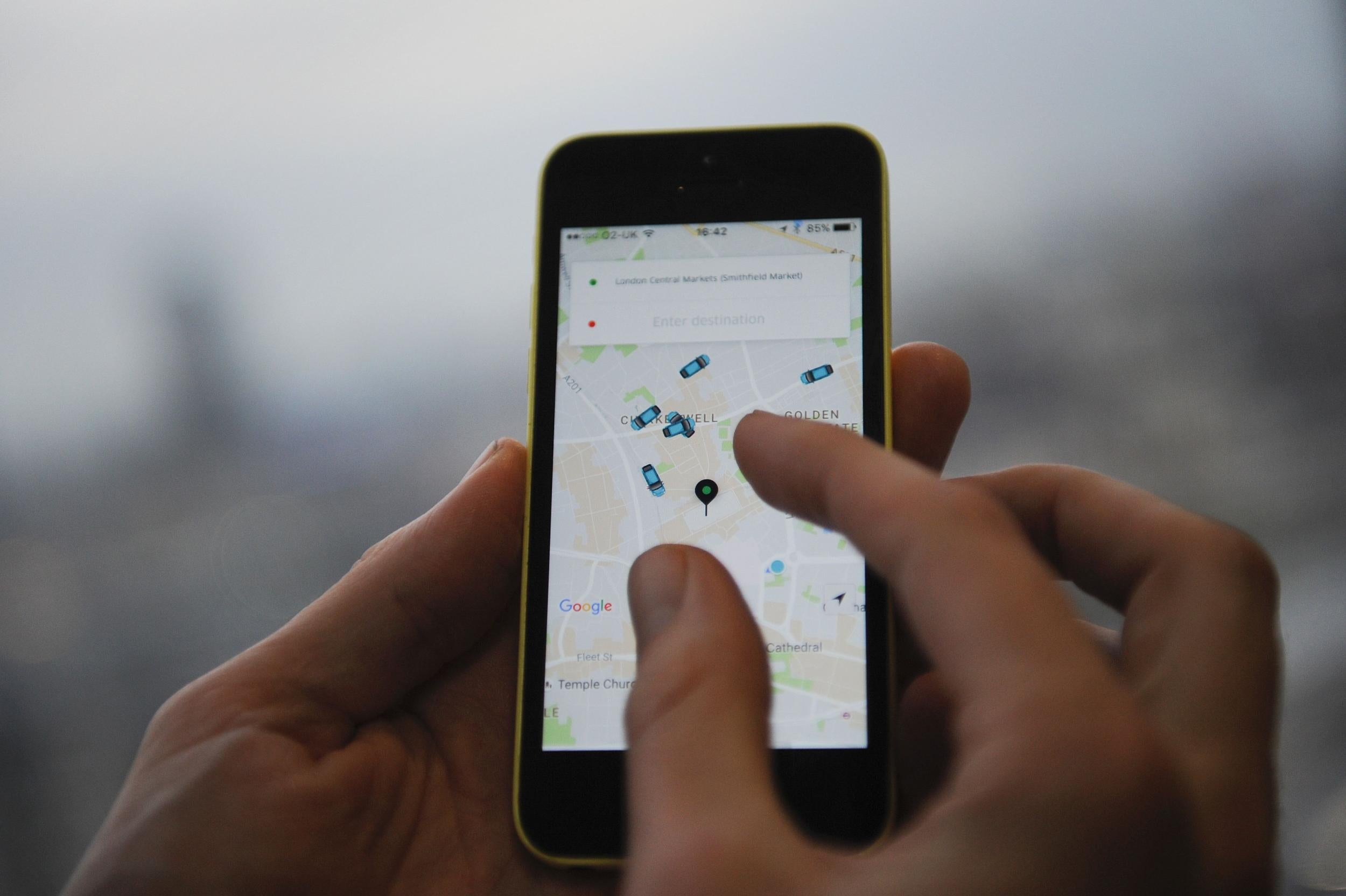Uber's happy go lucky drivers never existed - it was exploitation from the start
From the beginning the gig economy found two expressions: those with capital who used the services to their advantage and those without who had to sacrafice their employment rights at the altar hard times

This year is the 500th year anniversary of Thomas Moore’s utopia and in many ways 2016 could have been the year in which we achieved some sort of semblance of a shiny new society that would free us from our common enemy: work.
At risk of sounding like the opening of an Adam Curtis documentary, we were told that technology would free us from our labour. In the post-work society, automation would take away the drudgery of the everyday, granting us more free time and the flexibility to work from our homes, and liberating us from the monotony of repetition.
The “gig economy” was sold as a milestone on the road to this utopian vision. Developments in communication technology – those little apps with pretty interfaces – would allow us to work hours that suited us and to pick and choose the type of employment we fancied that day. Feel like going for a long drive and catching the sights while picking up some passengers and some cash on the way? Why not download Uber. Going away for the weekend? Rent out your flat and earn back your holiday spends. Got a spare evening? Help someone in your neighbourhood paint their flat while they spend some time with their kids. It sounds like heaven on Earth.
However, like all projected utopias, this place was never meant to be. Today UK we’ve finally woken up to the reality of the gigging life. Uber has lost a landmark tribunal case over drivers' working rights. The company has always maintained that drivers were self-employed entrepreneurs, and they were just a tiny software platform helping link small businesses to customers. These drivers loved the flexibility of it all, they claimed; they were more than happy to forgo needless benefits such as the minimum wage or holiday and sick pay.
But these happy-go-lucky giggers never really existed. Upon its creation, the gig economy found two expressions: those with capital used the services to their advantage, such as the 45 per cent of London Airbnb properties that are not really temporarily empty homes but full-time unregistered hotels; and those without access to large amounts of capital who find themselves with few employment opportunities and are forced to take up precarious gig work – and with it a lack of employment benefits should work dry up or illness strike.
Many Uber drivers face difficult working conditions, take home less than the national minimum wage when the cost of running a car is taken into account, and, as a result, are forced to work longer hours without the ability to take paid holiday. Some report putting their health at risk to stay solvent.
Uber has always maintained that it is technology business; it does not provide a transportation service. As such its drivers are self-employed contractors rather than permanent employees – well that’s what their “contract” says anyway. However, what is written in a contract does not determine someone’s employment status. Today’s tribunal decision rested upon the conclusion that the Uber contracts are utter tosh – they’re employees not contractors.
“We are entirely satisfied that the drivers are recruited and retained by Uber to enable it to operate its transportation business. The essential bargain between the driver and the organisation is that, for a reward the driver makes himself available to Uber to carry their passengers…the employer is precluded from relying upon its carefully crafted documentation because, we find, it bears no relation to reality,” the judgement found
For employee status, as well as a contract there also needs to be an element of control by the employer over the employee. The judges conclusion found that the balance of power was always in Uber’s favour – the company interviews and recruits drivers, sets the ‘Rider Terms’, logs off drivers who breach those requirements, fixes the fare and default route, imposes conditions on drivers, performance manages them through the rating system and handles all customer data and complaints. In short the tribunal found that when the app is switched on and the driver is within the territory in which he is authorised to work, and able to accept assignments, he is working for Uber under a ‘worker’ contract.
According to the Office for National Statistics in 2016 one in six of UK workers are self-employed. Hopefully today’s decision will shine a light on this growth in exploitative working conditions and set a precedent for other precarious workers, such as the Deliveroo riders, who are protesting against their working conditions. The jig, or rather the gig, is well and truly up.
Join our commenting forum
Join thought-provoking conversations, follow other Independent readers and see their replies
Comments
Bookmark popover
Removed from bookmarks